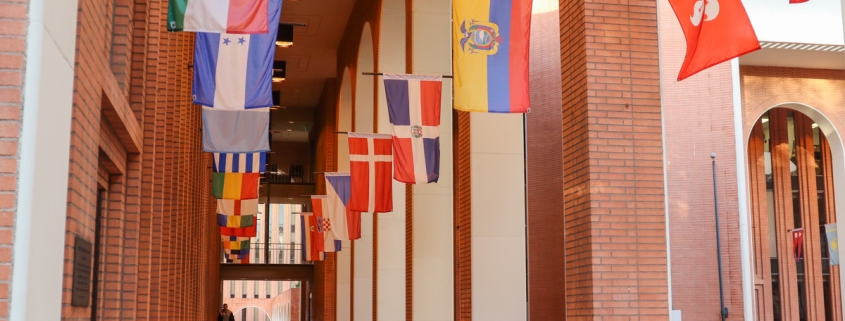USC suspends China programs

When students learned the University was suspending its overseas programs in China due to fears of coronavirus contagion, they were left uncertain of their next steps. Classes at the University had already begun, so the would-be study abroad students could choose between returning to Los Angeles and joining classes three weeks into the semester or taking a semester-long leave of absence.
On Jan. 30, the U.S. Department of State issued a Level 4 travel advisory for China, warning people to stop all travel to China, due to the life-threatening risk from the coronavirus outbreak. All major airlines will be canceling flights to China beginning next week. The University, which cancels international programs at a Level 3 travel advisory, emailed students enrolled in the China programs last week to inform them of the cancellation and list alternative options.
Sean O’Connell, director of the International Business Program at the Marshall School of Business, said the cancellation of overseas programs in China was based on the University’s policy against sending students to countries with travel alerts.
“USC does not send students to any countries where there is a Level 3 or Level 4 travel warning,” O’Connell said. “That’s the University policy, so we had to immediately suspend those programs.”
O’Connell said universities in China had a late start date for the spring semester that began after Chinese New Year, which was on Jan. 25 this year, and which is why students in Marshall’s international exchange programs hadn’t arrived in China before the program was canceled.
“[Universities in China] do not start classes until after Chinese New Year,” O’Connell said. “None of the students were attending classes or starting classes at [Peking University] or Fudan, where we have our exchange programs.”
O’Connell said the University has offered a few options for the students in the overseas programs in China: coming back to school or taking a leave of absence.
“The students either chose to come here back to school or they went on leave of absence for the semester,” O’Connell said. “Because last Friday was the last day to drop and add [classes], and this happened at the beginning of the week, they were able to get into classes here.”
The Dornsife College of Letters, Arts and Sciences declined to comment further on the options for students enrolled in the China study abroad programs.
Jessica Zhai, a senior majoring in communication, was a part of Dornsife’s Council on International Education Exchange program in Beijing that got canceled. She said she chose to take a gap semester and stay at home in China because she would have to make up for the missing assignments and lectures from the past three weeks.
“I just think that it’s hard for me to catch up,” Zhai said. “Currently, I have a very high GPA, so I do not want to jeopardize my GPA at all.”
Zhai also said the possibility of getting infected with the coronavirus on the flight back to the United States drove her not to go back to school.
“I don’t want to travel back because of potential risk,” Zhai said. “My friends who went back to their countries often tell me that the next flight landed has people already infected.”
Zhai said she understands the University’s decision to cancel classes due to safety concerns, but since she was already in China, she wants the school to manage student cases on an individual basis.
“It’s really awkward or difficult for students like me who [are] in China currently and the program got canceled,” Zhai said. “They’re very worried about our safety, and of course they do not want to assume any responsibility for whatever happens to you.”
U.S.-China Institute Director Clay Dube said the travel advisory has complicated the travel arrangements that researchers and visiting scholars have planned.
“The main impact, as far as the Institute goes, has been in complicating some travel arrangements that some researchers had planned,” Dube said. “Also potentially complicating some of the student-oriented programs that we have in place, not just for the spring but rather for the summer and fall.”
Dube also mentioned the travel restriction may affect the orientation programs that the U.S.-China Institute normally provides for incoming international students.
“This is an important season in terms of obviously choosing the students, and then providing them with preparation so that they can come and get off to a good start,” Dube said. “It’s something the University does but all of these travel constraints are affecting that.”

